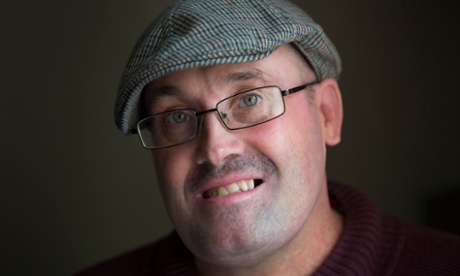A critically acclaimed Hollywood movie opening in UK cinemas this week is shining a much-needed spotlight on how learning disability is represented in film.
The Peanut Butter Falcon stars Zack Gottsagen, an actor who has Down’s syndrome. He plays a man who escapes his care home to follow his ambition of becoming a professional wrestler. The film has won universal plaudits for its feelgood factor and optimistic messages about fulfilling your dreams and not judging a book by its cover.
But amid the overwhelmingly positive reviews, there has been little debate about how far this film truly challenges attitudes. One person’s heartwarming is another’s mawkish, and The Peanut Butter Falcon’s sentimental approach could be construed as reinforcing stereotypes about “vulnerable” disabled people triumphing over tragedy. It is a far less gritty film than 2017’s Sanctuary, for example, which reflects the human impact of the now repealed Irish law banning learning disabled people from having sex, or 2016’s My Feral Heart, about a man forced into residential care. Although the general moral of the story is to treat learning disabled people as adults, specific scenes feature Gottsagen’s character playing a childish second fiddle to his two – non-disabled – romantic leads.
Some of the coverage of the film has also been uncomfortable. How many 34-year-old actors are interviewed with their parents, for example? There has also been more focus on Gottsagen’s “struggle” with his disability than on the acting skills he has honed since the age of three (descriptions of an “unlikely star” compound this). However, given Hollywood’s previous offerings, such as Rain Man and Forrest Gump, featuring non-disabled actors as disabled characters, having a learning disabled actor playing a learning disabled character seems like a significant step forward. The directors, who met Gottsagen at an acting camp, were offered money to replace the actor they had shaped their film around. They refused.
Amid the cliches there is also authenticity in scenes reflecting the restrictive nature of institutions and in the portrayal of risk-averse, overprotective carers infantalising a grown man. So, The Peanut Butter Falcon should be welcomed as a mainstream, crowd-pleasing fable that opens the door to more truthful and raw screen portrayals of learning disability.
More than 2,000 films made by or featuring people with learning disabilities or autism have been submitted to the forthcoming Oska Bright film festival, which opens in Brighton next week. The biennial event, founded 15 years ago by learning disabled film-makers and supported by disability arts charity Carousel, is the world’s biggest learning disability film festival and has a reputation for showing radical work (it hosted the UK premiere for Sanctuary in 2017). This year, for the first time,the short films being screened will be eligible for a Bafta.
Sarah Watson, an Oska Bright committee member, says her aim is to push for a more inclusive workforce in film as well as for fairer representation on screen (only 0.3% of the film workforce is disabled, according to UK film industry organisation Creative Skillset). Watson, incidentally, is a fan of The Peanut Butter Falcon, which she describes as “funny and heartwarming, but not too heartwarming”.
Matthew Hellett, the festival’s programmer, says Oska Bright will showcase “big bold stories from learning disabled people ... hopefully people will talk about the films and have a positive outlook.” He firmly believes films like Rain Man and Forrest Gump are “completely wrong” because they fail to represent the lives of learning disabled people: “Without people that look like you on the screen, you don’t know that it’s possible for you to be there yourself.”
Better screen and stage representation for the UK’s 1.5m learning disabled people will also impact on public attitudes. Alongside glaring inequalities in health, education and housing, learning disabled people are the target of hate crime (new research from learning disability charity Dimensions shows 73% of 200 learning disabled people surveyed experienced such incidents). There is surely space both for mainstream Hollywood movies like The Peanut Butter Falcon that trickle down into the public consciousness and grassroots filmmaking that will hopefully influence change in the film industry. Both are vital if we are to see more learning disabled people both in front of and behind the camera.
• Saba Salman is a journalist specialising in learning disabilities and editor of the forthcoming Made Possible, a book of essays written by people with learning disabilities











